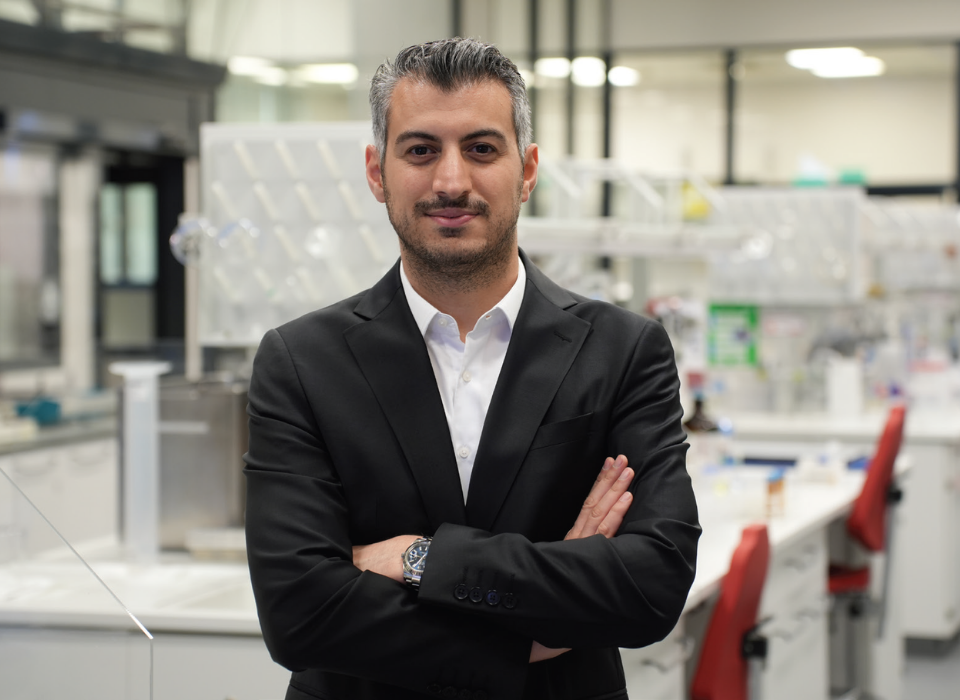
Interview: Gamze Ünal
Balparmak is committed to elevating honey to the value it truly deserves. By blending its deep-rooted dedication to apiculture with cutting-edge science and technology, the brand leads the industry forward through digital transformation, traceability systems, advanced laboratory research, and sustainability-driven initiatives.
Under the leadership of its CEO, Ulaş Altıparmak, Balparmak champions a bold vision, protecting both producers and consumers through apiculture training programs, scientific measures against counterfeiting and adulteration, innovative packaging solutions, and impactful social responsibility projects.
Could you please tell our readers a little about yourself, your academic background, and professional journey?
After graduating from Sabancı Business School, I completed my academic journey with an MBA from Bilgi University. Throughout my education, I cultivated a strategic and analytical mindset, which I’ve consistently worked to refine at every stage of my career.
I began my professional journey at Altıparmak Gıda as a Merchandiser. Over the years, I took on responsibilities across diverse areas, including sales, business development, project management, and field operations. I played an active role in several critical functions, including structuring alternative sales channels, managing direct sales teams, coordinating field operations, and building partnerships with national retail chains.
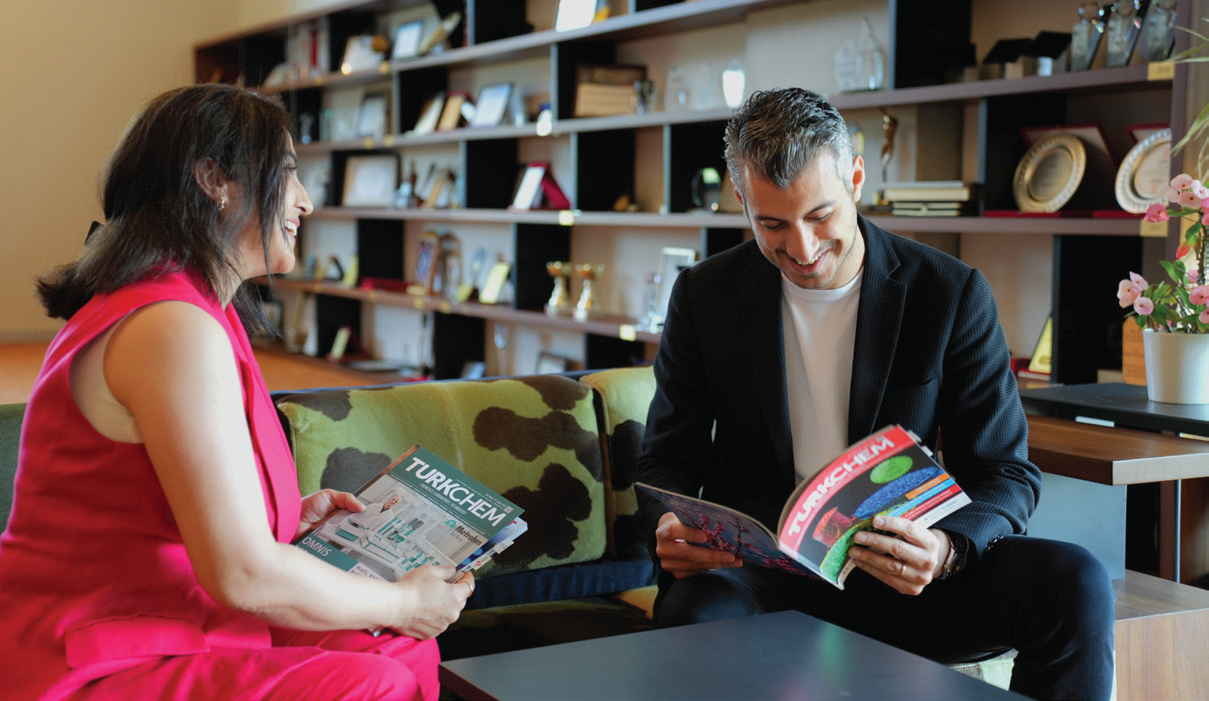
In particular, I played a leading role in corporate transformation projects focused on digitalization, new channel strategies, organizational efficiency, and sustainable growth. By being involved in both the strategic planning and execution phases, I helped bring to life various initiatives that have propelled the company forward.
Today, as the CEO of Balparmak, my priority is to both preserve the strong values of a 45-year-old brand and to drive transformation with an innovative perspective. We continue to advance Balparmak’s industry leadership every day through our commitment to continuous improvement and our unwavering dedication to naturalness. Our strength comes from nature; our inspiration, from the perfect order patiently built by bees. Being listed among the “Türkiye’s Second 500 Largest Industrial Enterprises” by the Istanbul Chamber of Industry (ISO) is a natural outcome of our 45 years of dedication, our vision rooted in apiculture, and our sustainable production capabilities.
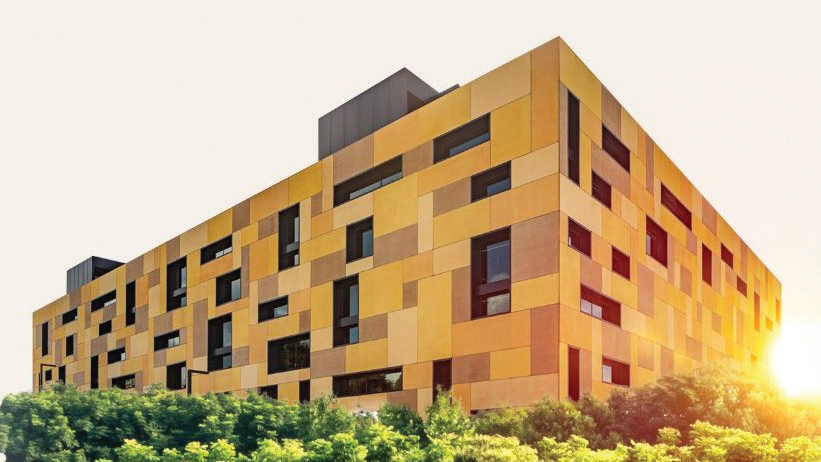
How has Balparmak evolved since its founding, and what changes have you observed in Türkiye’s apiculture industry? How did you adapt to these changes?
Our journey began in 1980 under the leadership of Özen Altıparmak, and by our ninth year, Balparmak had become Türkiye’s bestselling honey brand. We’ve proudly maintained our industry leadership for the past 36 years. Over the course of 45 years, the apiculture sector has undergone significant changes. Two key challenges stand out: the aging of the profession and the persistent issue of counterfeit and adulterated honey. In Türkiye, apiculture is a cherished ancestral tradition. Its sustainability depends on families continuing to pass the craft down through generations and relying on it as a source of livelihood. Unfortunately, veteran beekeepers who practice their trade with integrity are forced to compete with fraudulent products, leading to income loss and declining motivation. Today, the profession is no longer attracting younger generations, and the demographic of beekeepers is steadily aging. To address this, we launched the Balparmak Apiculture Academy in 2018, with a special focus on encouraging women and young people to enter the field. At our Balparmak R&D Center, we’ve made substantial technological investments and assembled a team of 20 scientific experts. Thanks to the advanced methods we’ve developed, we can now detect adulterated honey in just 25 minutes.
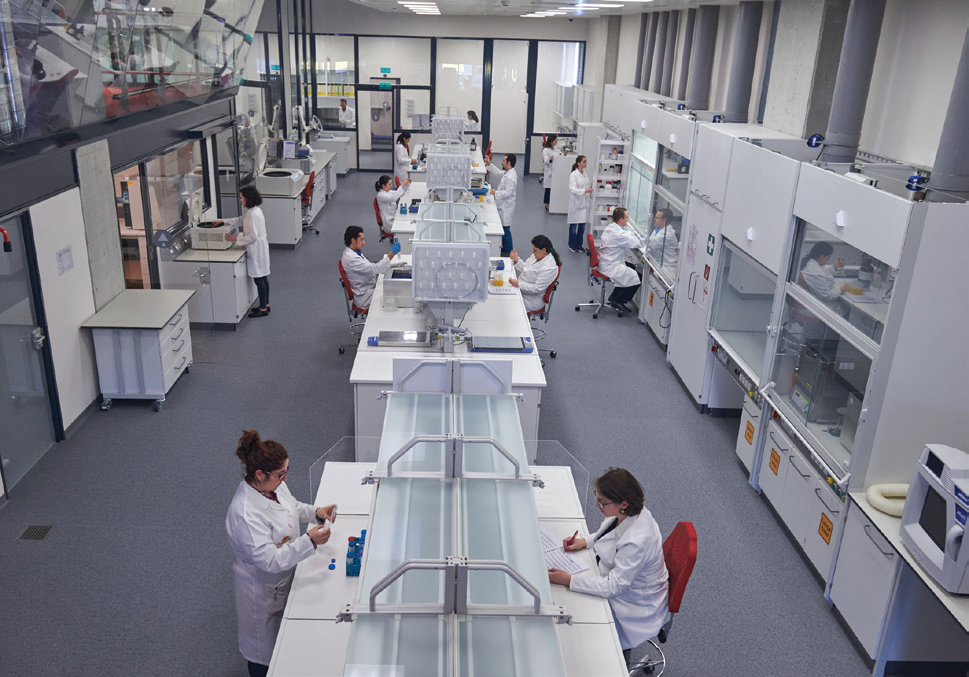
We also introduced our traceability initiative, “What’s the Source of This Naturalness?”, to ensure consumers can confidently access authentic honey. Through a special QR code placed on each Balparmak product, consumers can transparently view the product’s origin, its compliance with quality standards, and the floral sources of the pollen it contains. All that’s left is for them to enjoy our honey with peace of mind. We see these efforts not only as a natural extension of our 45-year leadership but also as a responsibility to our consumers. Under the Reliable Food framework, we remain firmly committed to protecting consumer trust and upholding the integrity of our products.
What practices does Balparmak implement to promote sustainability and protect natural resources? What methods do you use to minimize the environmental impact of your apiculture operations?
We begin our sustainability efforts at the most fundamental level: our supply chain. Every step we take is guided not only by environmental concerns but also by social impact, with the goal of preparing our industry for the future.
Established in 2018, the Balparmak Apiculture Academy was founded with a vision that goes beyond traditional training. Our aim is to drive lasting transformation in the sector, particularly by encouraging women and young people to enter the profession. We believe that apiculture can only become truly sustainable through an inclusive structure. When women play an active role in agriculture and food production, the benefits extend far beyond the economy, creating meaningful social impact as well.
For us, sustainability is not just about being environmentally friendly. It’s also about enhancing quality, raising standards, and driving innovation across the industry. We believe apiculture should not be limited to honey alone. By supporting the production of high-value bee products such as pollen, propolis, and royal jelly, we help beekeepers generate additional income and contribute to sectoral diversity. This not only makes apiculture more attractive but also strengthens the national economy. Through the Academy, we provide training on colony management, bee diseases, climate resilience, honeybee health, and modern apiculture techniques. At Balparmak, we are committed to protecting both consumers and beekeepers by combating fraud in bee products. Backed by our advanced R&D capabilities, we develop innovative and comprehensive analysis methods to detect adulteration. We are firmly committed to combating all forms of honey adulteration to preserve its natural purity and honor the hard work of beekeepers. We rigorously analyze incoming honey using at least 100 parameters at our APILAB Quality Control Laboratory, Türkiye’s first and one of Europe’s four benchmark labs in the field. Our lab supports responsible production by ensuring traceability, enhancing food safety and quality standards, and driving innovation. Only products that meet our strict criteria for purity and naturalness are packaged under the Balparmak guarantee and delivered to our customers.
According to Turkish Time Magazine’s R&D 250 Report, Balparmak ranks among the top 10 food industry brands in R&D investment. What began in 1986 as a modest 9-square-meter lab has grown into a 1,607-square-meter R&D center staffed by 20 scientists, most of whom hold Ph.D.s, producing work recognized on international scientific platforms.
Our new packaging facility, launched in 2025, is a tangible reflection of our sustainable production philosophy. We measure our carbon footprint and pursue solutions to improve water and energy efficiency. This facility is not just about packaging—it’s about environmental responsibility. We’re building a packaging model that places less strain on nature and uses resources more consciously.
On World Bee Day, we launched the “Think Like a Bee for Nature” project in collaboration with Migros and the TEMA Foundation. Our goal was to foster a love of nature in children and raise awareness about the vital role bees play in the ecosystem. As part of the project, we asked children to answer the question, “If you had the strength of 60,000 bees, what would you do to make nature more beautiful?” through drawings. Each drawing was turned into a sapling with donations to the TEMA Foundation, creating a memorial forest that will breathe life into the future. In doing so, we aimed to give children a meaningful experience of contributing to nature and growing up with a sustainability mindset.
By the end of 2026, we plan to publish our first Sustainability Report to transparently share our efforts. More than just a summary of our activities, the report will also serve as a testament to our long-term commitments. At Balparmak, we strive to implement sustainable production and consumption principles that add value to society and the environment—through food safety, ecological balance, and economic sustainability.
Your product range is extensive. What factors play a key role in your new product development processes? How do consumer needs, market trends, and scientific research influence these efforts?
Today, we design packaging solutions that are practical, easy to carry and use, and that help prevent waste, always with consumer habits and rapidly changing lifestyles in mind. Modern consumers are more active than ever and seek quick, convenient solutions. We respond to this lifestyle by making honey more accessible and easier to enjoy. This is more than a packaging strategy; it’s a value-driven approach. A honeybee produces only a fraction of a teaspoon of honey in its lifetime. We believe this ancient substance, older than human history itself, deserves deep respect, and that every drop should be preserved. With this awareness, we’ve developed hygienic packaging that prevents unnecessary spillage and simplifies use. For example, our KatlaBalla (Easy Snap) product offers honey in single-use, portable packs for convenient consumption. Another innovation, Çıt Kapak (Flip-Cap), allows consumers to enjoy larger quantities of honey in a clean, practical, and easily transportable format.
In our wellness brand Apitera, we develop functional solutions at our R&D Center based on evolving consumer needs. One example is the Apitera Propolis Throat Spray, originally formulated for adults. Without compromising its potency, we created a child-friendly version of Apitera Kids Spray with Propolis, tailored to children’s taste sensitivities. Combining the natural protective properties of honey, propolis, and apple cider vinegar, this product was co-developed with TÜBİTAK MAM (The Scientific and Technological Research Council of Türkiye – Marmara Research Center) and our TÜRKAK-accredited R&D Center, which ranks among Europe’s four benchmark laboratories for honey and bee products. Apitera Kids Spray with Propolis stands out as a scientifically backed, immune-supportive product, thanks to the proven antiviral and antibacterial properties of propolis.
It was named “Most Innovative Product of 2024” in a study conducted by Marketing Türkiye in collaboration with YouGov. Additionally, a consumer feedback survey conducted via denebunu.com with 1,518 mothers across 73 provinces revealed that 9 out of 10 who tried the product would recommend it. These innovations reflect our commitment to reimagining traditional honey and bee products for modern lifestyles.
In essence, we strive to unite the labor of bees, the balance and sustainability of nature, and the power of science to deliver products that truly enrich human life.
Do you conduct scientific research on the benefits of bee products? If so, how do these findings influence your product development and marketing strategies?
In recent years, there has been a global surge of interest in honey and high-value-added bee products. A wide range of scientific studies and published articles now explore the health benefits of honey, propolis, royal jelly, and pollen.
At Balparmak, we mobilize our full scientific expertise and technological infrastructure to protect, develop, and sustain propolis—one of nature’s most valuable gifts to humanity—as an integral part of healthy living.
In research conducted at our Balparmak R&D Center, we identified 126 distinct molecules in brown propolis (Populus nigra). This study, unprecedented in its scope, marks a breakthrough with implications for multiple sectors including healthcare, pharmaceuticals, and food. Our team is now preparing for clinical trials, which will reveal the specific effects of these molecules.
We shared with the global scientific community the findings of this groundbreaking study, in which we essentially mapped the DNA of propolis, at the 4th International Propolis Conference held in São Paulo, Brazil. Among 54 scientific presentations from 24 countries, the presentation by İsmail Emir Akyıldız, Ph.D., Analytical R&D Director at Balparmak, was recognized by the University of São Paulo, the home to the world’s leading body of propolis research, with the award for “Most Successful Scientific Study in the Field of Propolis.” This award is a powerful testament to Balparmak’s scientific capabilities and commitment to innovation on a global scale. It also supports our broader goal of strengthening Türkiye’s global competitiveness in the field of propolis. As we continue to advance our country’s position in this field, we remain committed to encouraging our beekeepers to produce in line with international standards, thereby supporting sustainable growth across the industry.
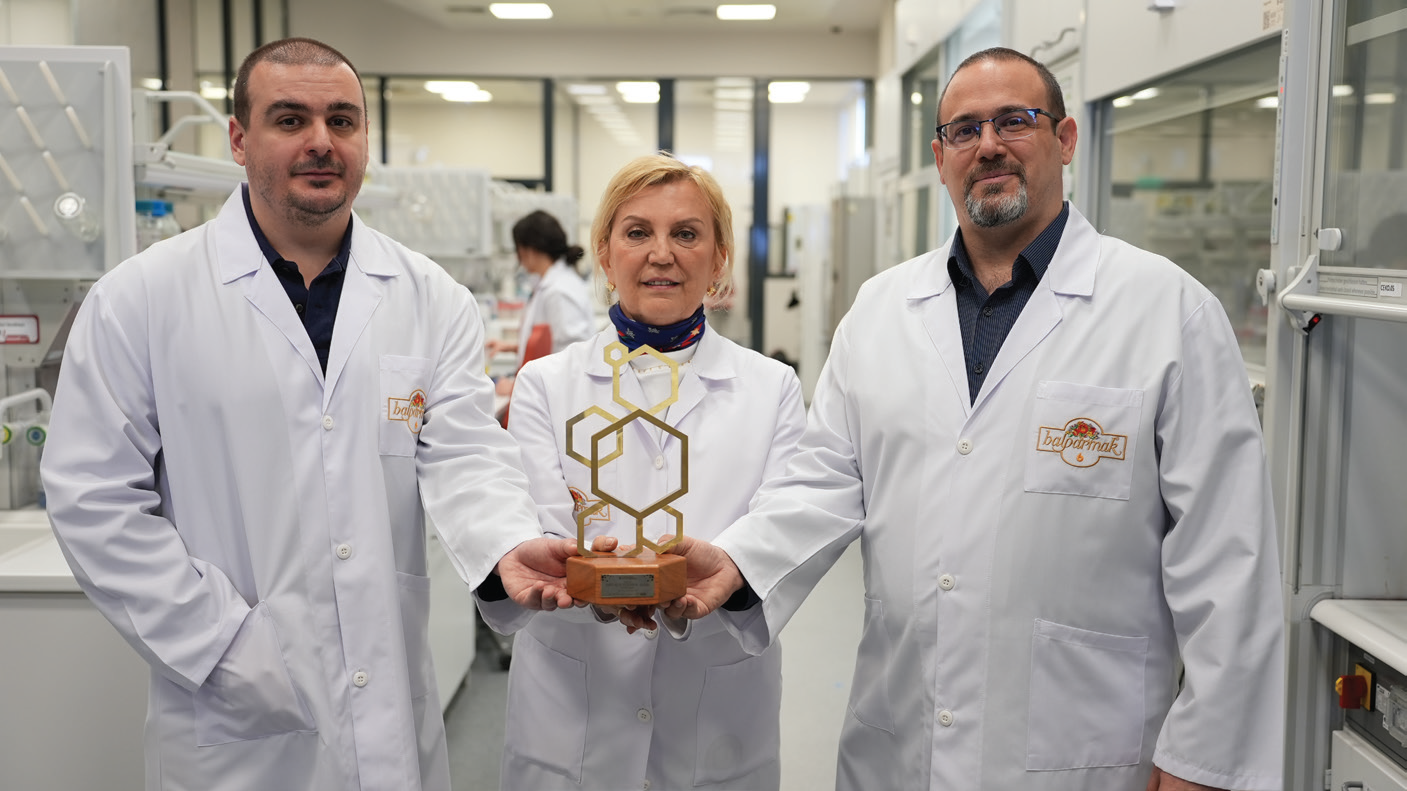 left to right: Dr. İsmail Emir Akyıldız, Dr. Emel Damarlı, Dr. Ufuk Alpat
left to right: Dr. İsmail Emir Akyıldız, Dr. Emel Damarlı, Dr. Ufuk Alpat
In what way does Balparmak contribute to the development of Türkiye’s beekeeping industry? What training programs, technical support, or other initiatives do you offer to beekeepers?
At Balparmak, we view beekeeping not merely as a production activity but as a strategic field that safeguards ecological balance, generates social value, and supports sustainable development. Guided by this vision, we’ve built a scientifically grounded, multi-dimensional support model to strengthen Türkiye’s beekeeping sector.
Launched in 2018 with support from the European Bank for Reconstruction and Development (EBRD), the Balparmak Apiculture Academy aims to cultivate not just honey producers, but well-informed, skilled beekeepers empowered by knowledge. To date, we’ve reached over 7,000 beekeepers, and we continue our in-person training programs into 2025. These programs cover a wide range of topics, from bee biology and colony management to bee diseases and treatments, queen bee production, and the production of high-value-added products such as royal jelly, pollen, and propolis. We also address regulatory frameworks and raise awareness about adulteration and fraud in bee products. Beyond this academic framework, we run targeted programs to engage women and young people in the profession because the future of beekeeping must be shaped by an inclusive approach that looks beyond today and invests in tomorrow.
We are deeply aware of the value of honey. A single honeybee produces only enough honey in its lifetime to fill the tip of a teaspoon. With this awareness, we work to preserve every drop of natural honey, offering it to consumers in packaging designed to prevent waste. One of our key priorities is the protection and global promotion of Türkiye’s pine honey, one of the country’s most valuable natural products. Türkiye accounts for 92 percent of the world’s total pine honey yield, and we played an active role in securing its geographical indication status. We contributed significantly to the process led by the Food and Agriculture Organization (FAO) and continue to highlight the functional properties of pine honey through scientific studies, which have gained both national and international recognition.
Our R&D team also pioneered a new C4 analysis method explicitly tailored for Turkish pine honey, which cannot be accurately assessed using the same techniques as flower honey. This method has been published in peer-reviewed international journals, accepted by European laboratories, and officially incorporated into Turkish Standards Institute (TSE) protocols thanks to Balparmak’s initiative. This scientific breakthrough has the potential to boost Türkiye’s pine honey exports by up to 30 percent. We see our work not simply as a commercial endeavor, but as a responsibility. In short, we invest not only in the legacy of beekeeping, but in its future. We empower beekeepers and ensure that consumers receive natural, trustworthy honey.
What are your future goals? Could you share your growth strategies, plans for entering new markets, and your vision for the bee products industry?
Balparmak is Türkiye’s leading natural honey brand.* We also rank among the top 10 global brands in the bee products category, and are recognized internationally as a benchmark institution in the field. In fact, we’ve reached a point where we export analytical methods to the industry. As a testament to our commitment to science and innovation, we’ve invested over $10 million in our R&D Center to date.
Our work centers on selecting and delivering natural bee products, which are miracles of nature, guided by scientific rigor and ethical values. With this sustainable business model, we pursue a long-term vision of becoming a deeply rooted and resilient institution, both organizationally and culturally. Our innovative, waste-minimizing packaging solutions are a tangible reflection of this vision, developed with full awareness of the labor that flows from nature to bees to beekeepers.
Today, we represent Turkish honey across a vast geography stretching from the United States to Australia, and from Canada to Hong Kong. We currently operate in 43 countries, including autonomous regions and free zones, where we build strong foundations with long-term strategies tailored to each market. As we expand into new markets, we go beyond simply establishing a presence. Instead, we aim to position honey beyond being perceived solely as a breakfast product, embedding it more broadly into local culinary cultures and consumption occasions.
At Balparmak, our goal is not only to reach more countries, but to elevate the global standing of Turkish bee products—especially those with functional benefits and high added value. Through enduring strategies, we strive to showcase their quality, diversity, and natural integrity. Ultimately, we aim to promote these values under the Balparmak brand and enhance Türkiye’s brand equity in the global bee products industry.
* Based on total turnover (in TRY) in the honey category in the Turkish market, according to the 2024 Nielsen Report.